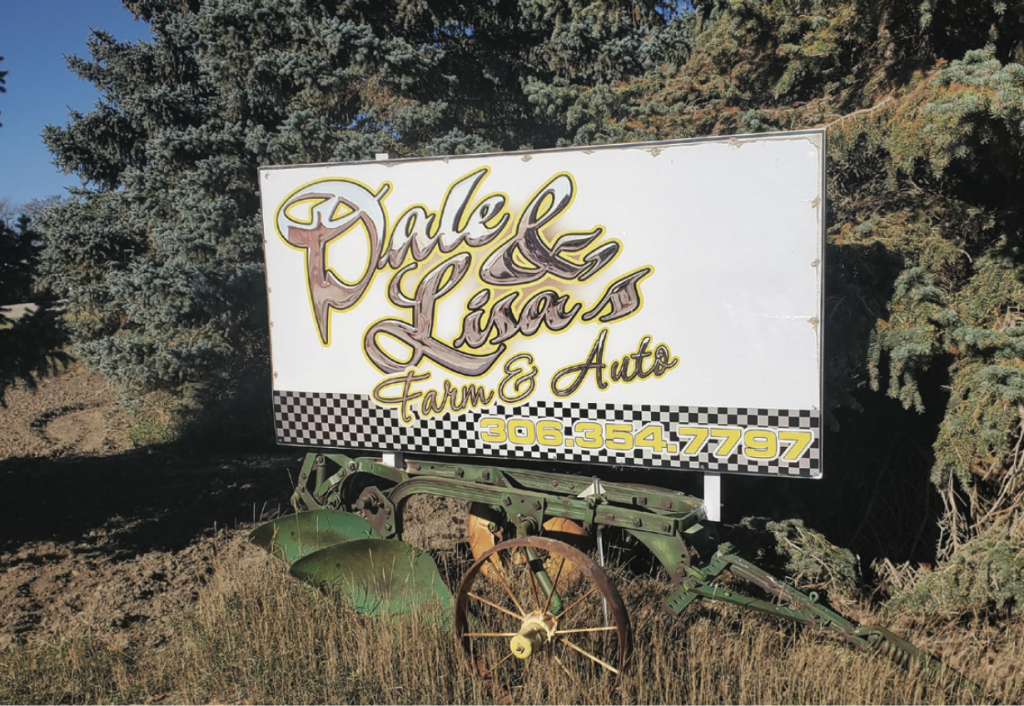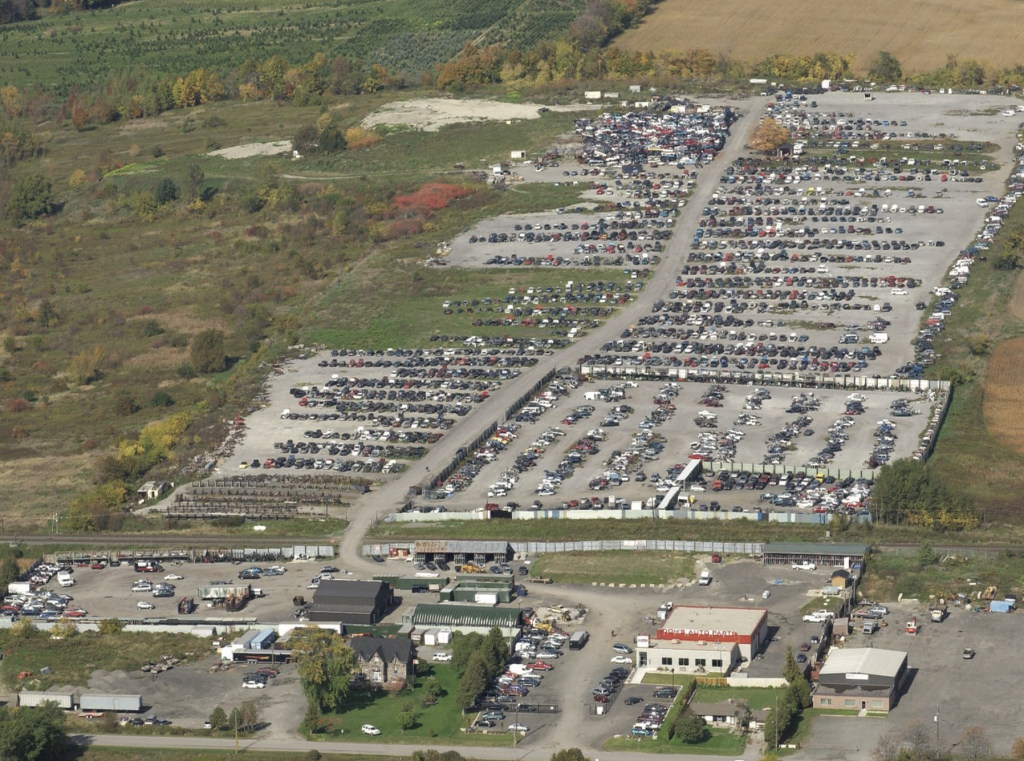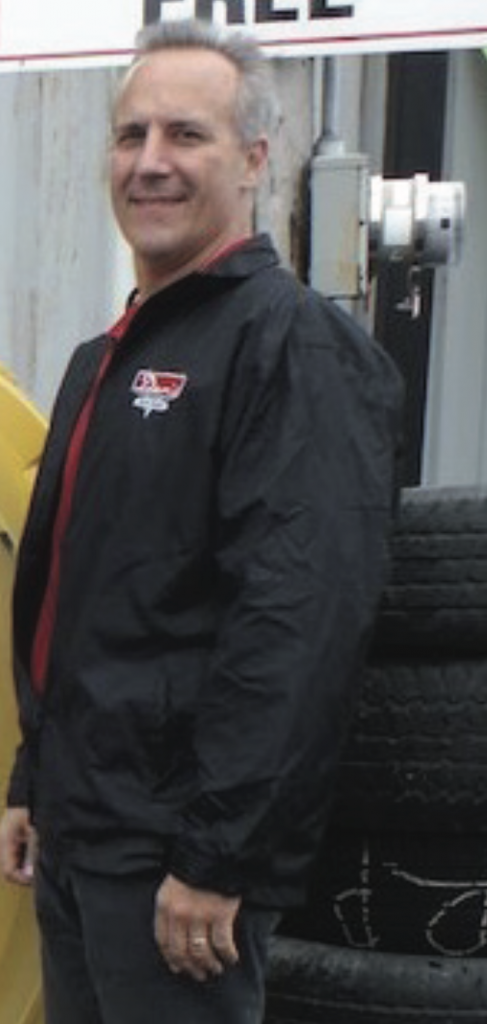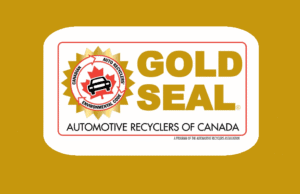By Ron MacDonald
Even crises can have a silver lining
The auto recycling industry is famous for seeing potential and opportunity in matters that other sectors of the industry would classify as waste. It’s no surprise then that auto recyclers would find creative solutions and inspiring ways to thrive during the pandemic—an unprecedented crisis wreaking havoc on industries across the board.
COVID-19 has thrown a wrench into the gears of the industry, introducing a slew of safety concerns, logistical restrictions, and labour shortages. This has launched a cycle of disruptions in the shipping and receiving of parts. Sourcing new parts from factories overseas is suddenly not as easy as it once was.
According to Dominic Vetere, owner of Dom’s Auto Parts, “COVID-19 has upset supply chains everywhere. Automotive is no exception.”
Brad Reynolds, owner of Reynolds Auto Salvage, puts it more bluntly: “It’s almost to crisis mode for these bodyshops, getting parts.”
Repair facilities and insurance companies who would have at one point preferred to work with cheap new parts have no choice but to look for local solutions. Thankfully, auto recyclers have an answer.
“We’ve realized how important salvage yards are to the industry. When aftermarket parts came around, body shops forgot about the salvage yards to a certain degree. Since the pandemic, parts ran out and they have come back to where they used to always get their parts,” said Reynolds.
Small incidental parts in particular have taken on a heightened significance in the warehouses of auto recyclers. Brackets, wiring pieces, and interior pieces are typically easy to order and ship due to their small size.
Dale Nagel, owner of Dale and Lisa’s Farm and Auto said, “I seem to be getting a lot more calls for small incidental parts simply because they’re not available from the manufacturer. Normally customers wouldn’t mess with these pieces before because they’re easy enough to order. But when they’re not available, they must come to us.”
However, it’s not all happy endings for auto recyclers. Just like every other sector of the automotive industry, parts shortages and labour shortages have given rise to unprecedented challenges for recyclers. Buying salvage has become more difficult than ever, with the prices of wrecked cars skyrocketing. As parts become scarce across the board, getting one’s hands on a used car becomes increasingly competitive. Vetere breaks it down like this:


According to Dale Nagel, who co-owns Dale and Lisa’s Farm and Auto with his wife, keeping their staff supported has been a main pandemic concern.
“From the demand for scrap cars, all the way up to late model salvage, prices have been off the charts. Vehicles of all years and makes are getting shipped out of the country and the price for scrap metal and catalytic convertors are at an all-time high.”
Additionally, auto enthusiasts and other players are repairing damaged cars and reselling them, grasping an opportunity in the rising prices of vehicles and repairs. According to Reynolds, “If the car is not irreparably damaged, people are buying them and they’re rebuilding them. There’s a shortage on their end getting cars. People off the street are going there. I cannot get my hands on a smashed-up truck right now.”
Moreover, shortages instigated by the pandemic have impacted the auto recycling sector, causing some recyclers to struggle finding help to run their facilities.
“There’s a labour shortage for sure; we cannot get workers,” said Reynolds. “It’s not business I’m scared of, in terms of sales and all that. It’s finding someone to get my parts off or to strip my cars.”
Thriving recyclers have taken challenges such as increasing salvage prices and labour shortages as opportunities to learn and improve their business. If anything, the pandemic has driven home the importance of taking care of the staff team.



“From the demand for scrap cars, all the way up to late model salvage, prices have been off the charts. Vehicles of all years and makes are getting shipped out of the country and the price for scrap metal and catalytic convertors are at an all-time high.”
— Dom Vetere, owner, Dom’s Auto Parts
According to Nagel, “Keeping the staff is one of the main things that I’ve concentrated on. If our staff needed days off, I gave it to them.”
Reynolds feels similarly.
“Everyone that’s stuck around has received a raise. At the end of the day, we cannot run our business without our staff,” he said.
As for the shortages, some recyclers are making the most of their supply by keeping better track of their inventory. Dalbert Livingstone, owner of Island Auto Supply said his facility was dealt a pandemic lesson in the importance of supply chain management, and how drastically those changes can affect bottom lines.
Despite the daily challenges, the best auto recyclers facilities never stopped investing in their businesses.
“We never stopped buying salvage,” said Reynolds. “And, because of the parts shortage, we’re busier than we have ever been.”




















